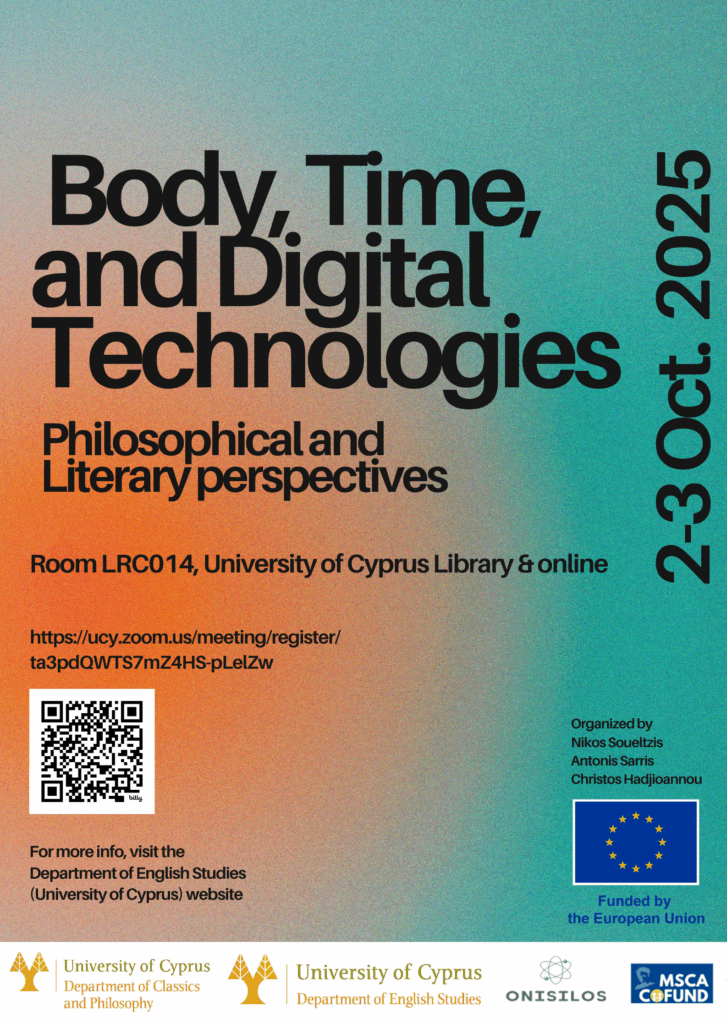Events Related to the NETRePerform Program
Narrating from the Margins:
Liberatory Practices of Engaging the Past and Reimagining the Future
Fanny Söderbäck
Professor of Philosophy, Södertörn University
Co-founder and Co-director of the Kristeva Circle
Speech Title
“Minor Stories, Archival Erasures:
Narrating Black, Jewish, and Palestinian Lives Subjunctively”
James R. Walker
Independent Scholar
Speech Title
“What Is That She Got? The Blues Epistemology and Counter-Hegemonic Systems of Knowledge”
Venue
Department of English Studies Conference Room
9 Klimentos Str. (2nd floor, Eliades Building), 1061 Nicosia Department of English Studies
Date
- Wednesday, 5 November 2025 @ 11:30
Body, Time, and Digital Technologies:
Philosophical and Literary Perspectives

Abstract
This international conference explores how digital technologies are reshaping human experience, embodiment, and creativity. Bringing together philosophers and literary scholars, it examines how technology alters lived experience, challenges subjectivity, and opens new horizons for thought.
Programme Highlights
- Keynotes and talks from leading scholars in philosophy, literature, and digital culture
- Hybrid participation (on-site and online)
- Wine & Cheese Reception (2 Oct.) and Conference Dinner (3 Oct.)
Venue
Room LRC014, University of Cyprus Library & Online
Online
Date
- Thursday 2 – Friday 3 October 2025
Imagining Otherwise.
Ricoeur and Butler on Ideology, Utopia and Imagination
by
Socrates Professor of Philosophical Anthropology and the Foundations of Humanism, Institute for Philosophy, Leiden University
&
Associate Professor, Department of Philosophy, VU-University Amsterdam.
Abstract
What is the role of imagination in envisioning a future without discrimination? What is its role in reorienting ideas that categorize and classify groups of people and pit them against each other?
Venue
Department of English Studies Conference Room
9 Klimentos Str. (2nd floor, Eliades Building), 1061 Nicosia
Department of English Studies
Date
- Wednesday, 4 December 2024 @ 14:00
